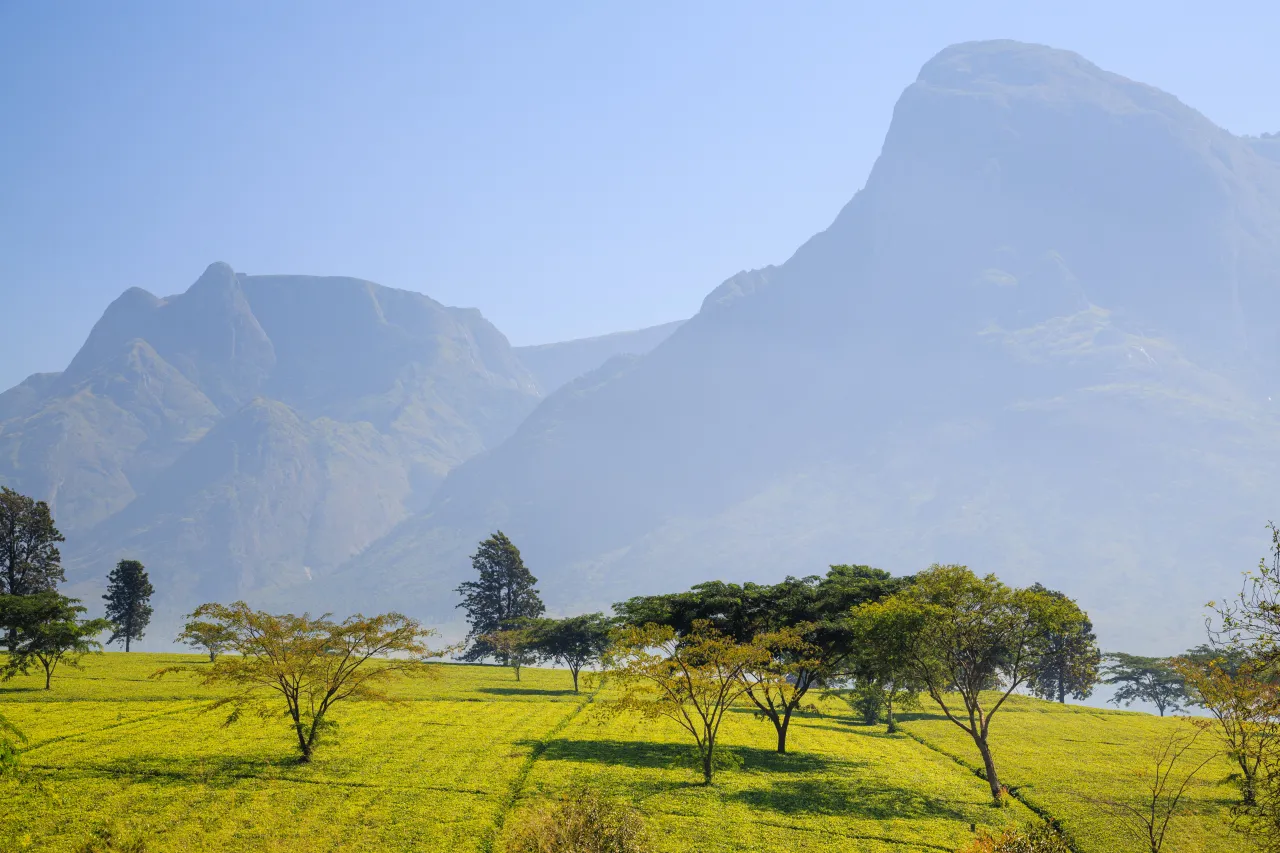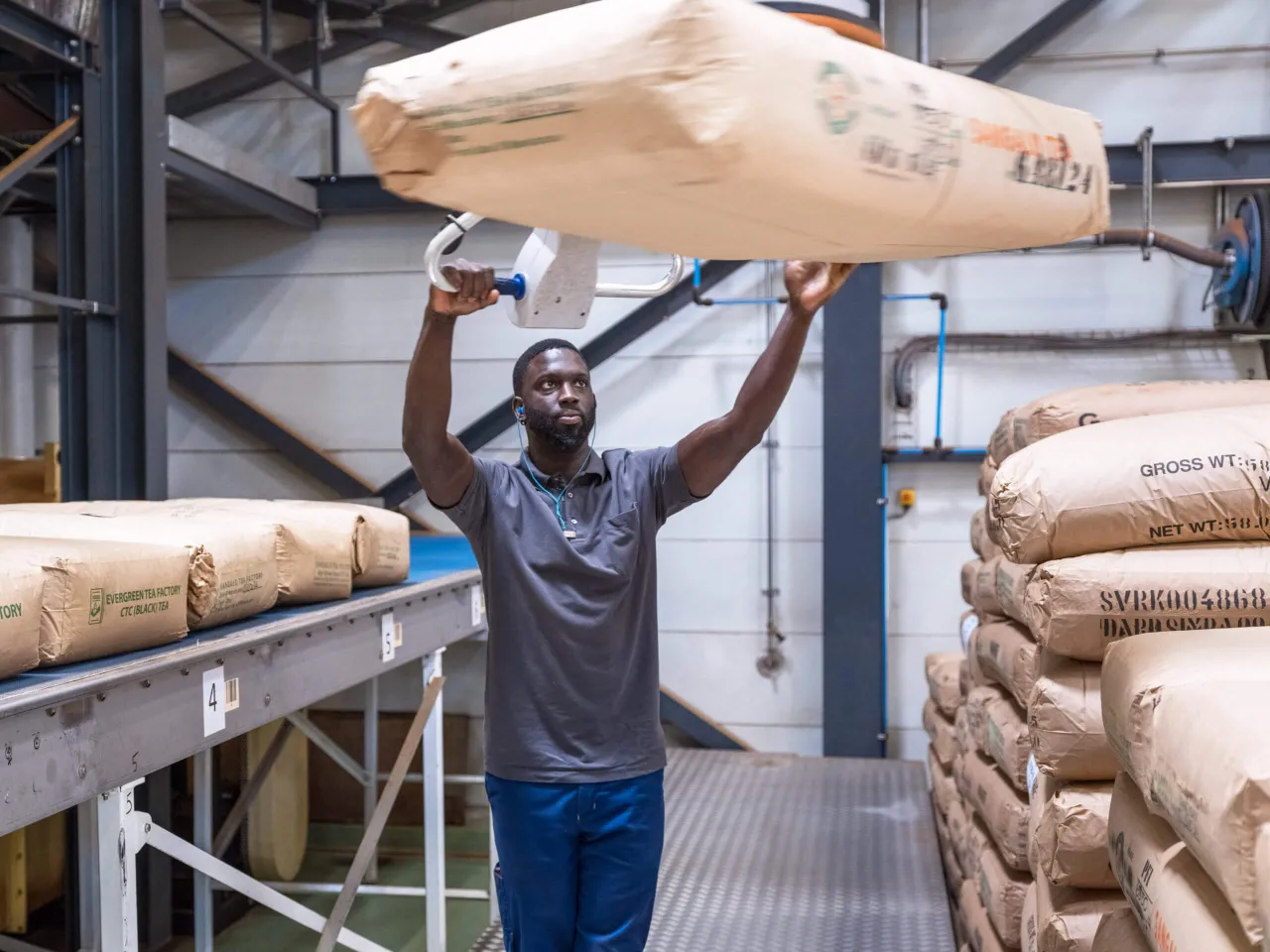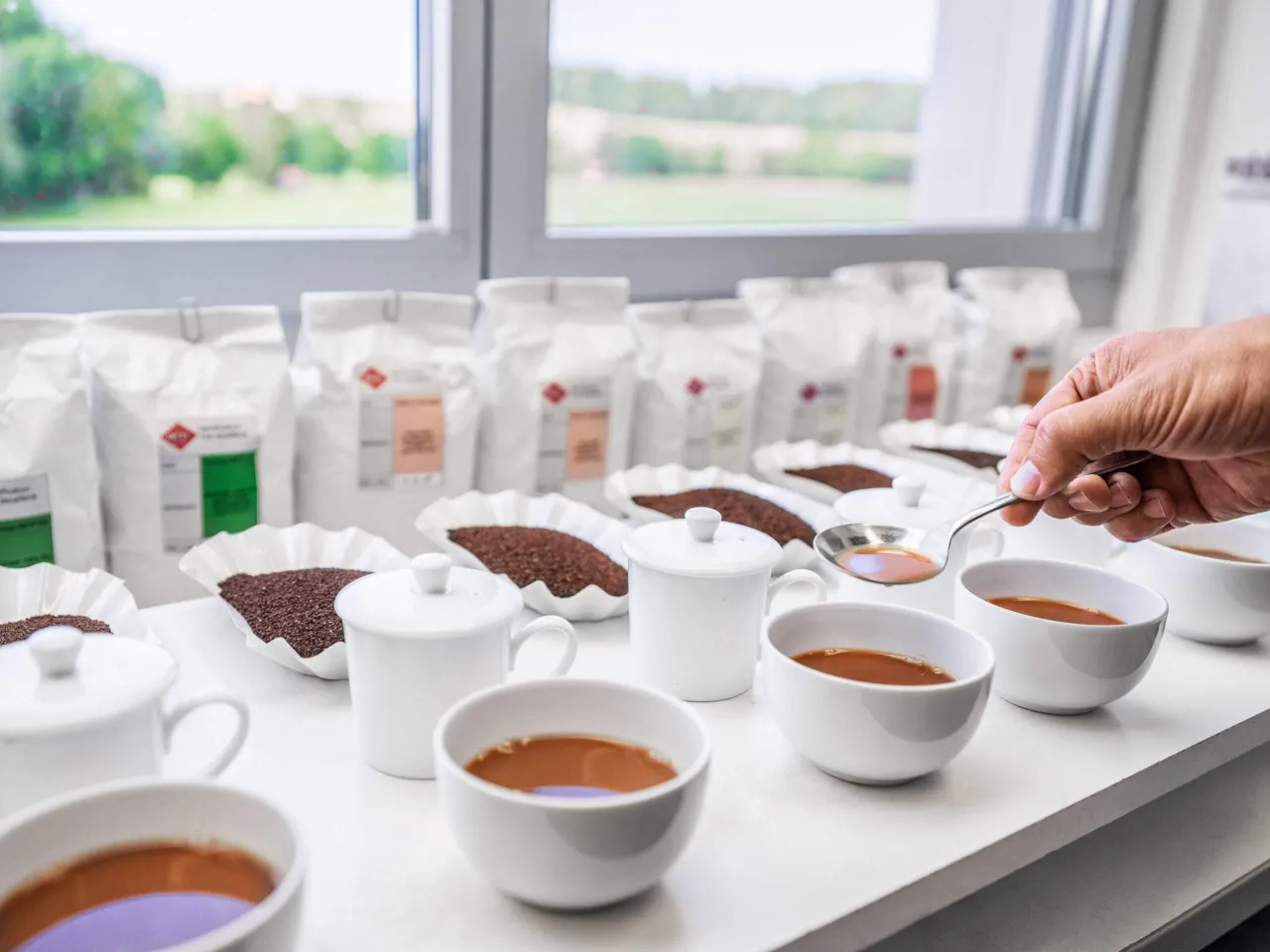Infré SA: the best of tea – without caffeine

In 1946, we became the first company in the world to start the industrial production of decaffeinated tea – thanks to the patented process of our co-founder Theodor Grethe. As a researcher and pharmacist, he developed a solvent-based method to extract caffeine from tea leaves as gently as possible.
By focussing consistently on the decaffeination of black and green tea, we have been able to develop from a small craft business into one of the world's largest suppliers of decaffeinated tea. Infré SA remains a family-run company today. We focus on building long-term and mutually beneficial partnerships with all our stakeholders.

At our production site in Switzerland, we process high-quality teas using state-of-the-art technology
Switzerland may be many things – but it is not a tea country. Nevertheless, we have always valued Switzerland as an excellent production location and for good reasons. The traditionally high standard of the local food industry offers us the opportunity to recruit excellently trained specialists for our company. As a family business, we value the proximity to our employees, whose loyalty we can count on. We also benefit from a network of highly qualified technology companies, colleges and universities. They offer us valuable support in maintaining and continuously optimising our automated production processes.

Passion for tea and decaffeinated tea
The origins of our company lie in our specialised solvent-based decaffeination of tea. However, we are also deeply invested in tea itself. Over the last 20 years, we have continuously developed and expanded our knowledge and expertise in tea. Today, we source our teas globally and create tailor-made blends to meet our customers’ specific requirements.
Like so many people around the world, we value tea and attach great importance to it, that is why we treat this natural product with great care, so that consumers can enjoy a cup of high-quality decaffeinated tea
